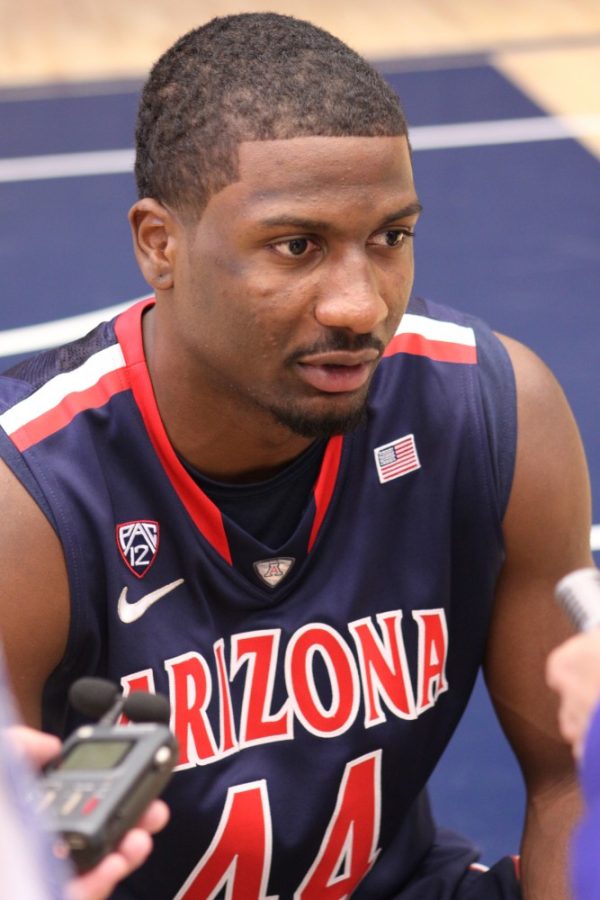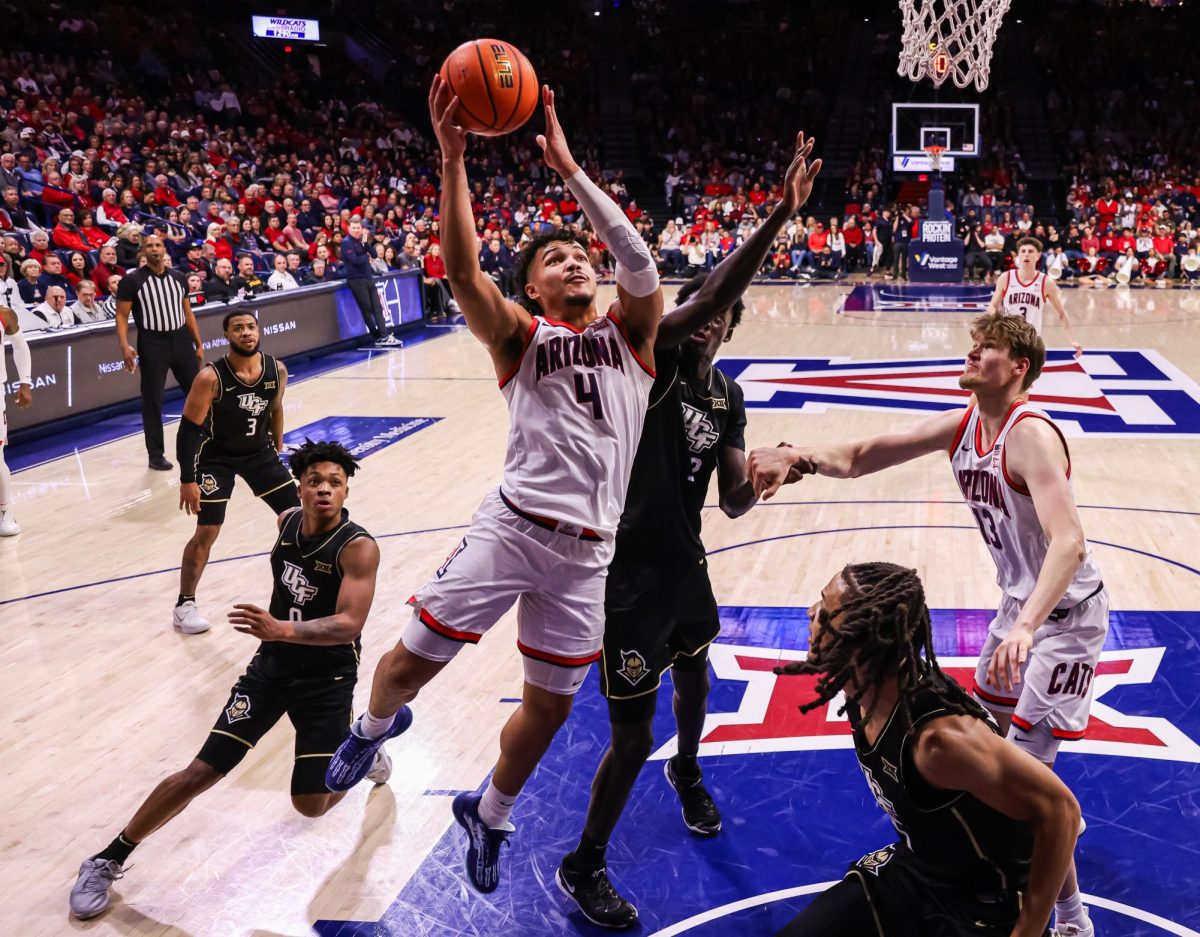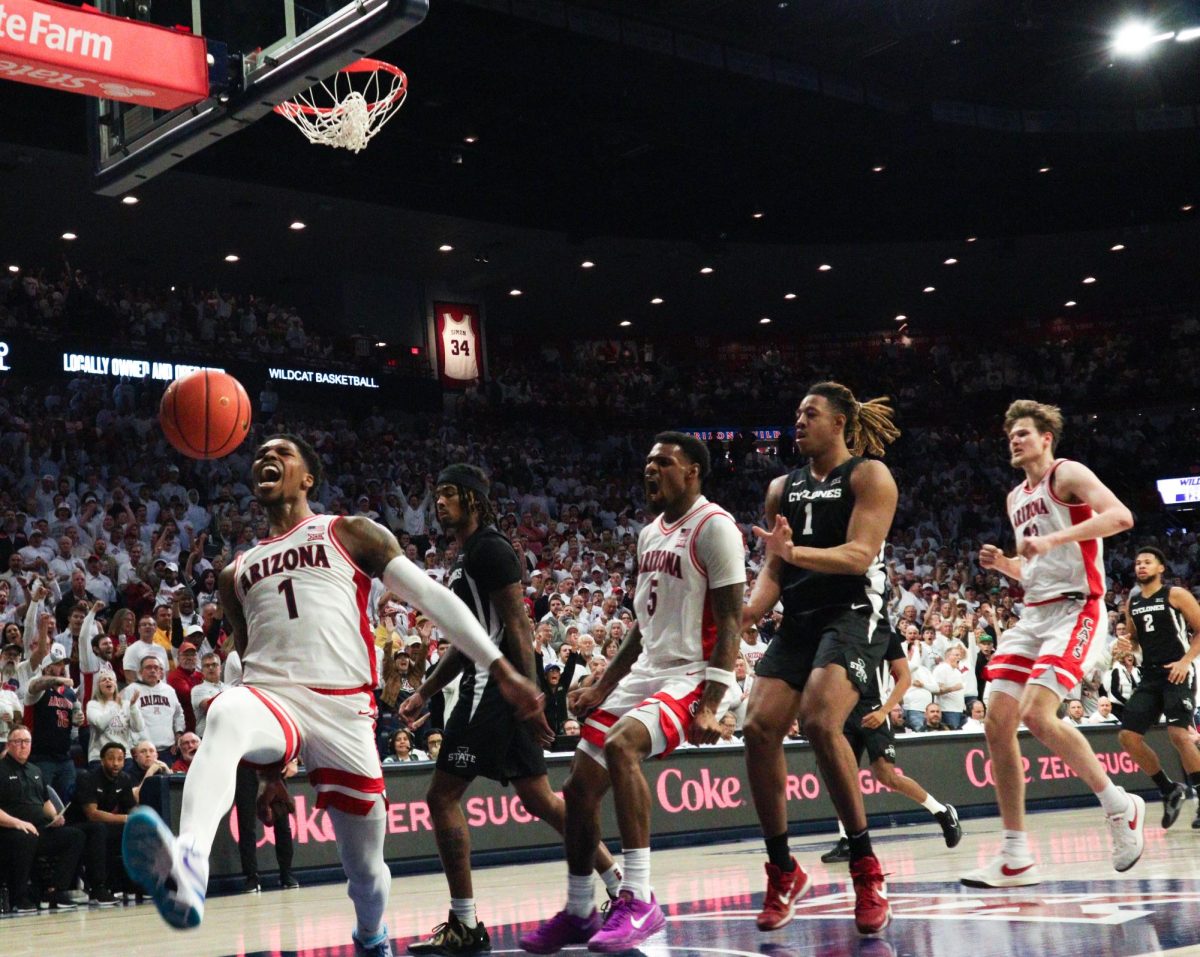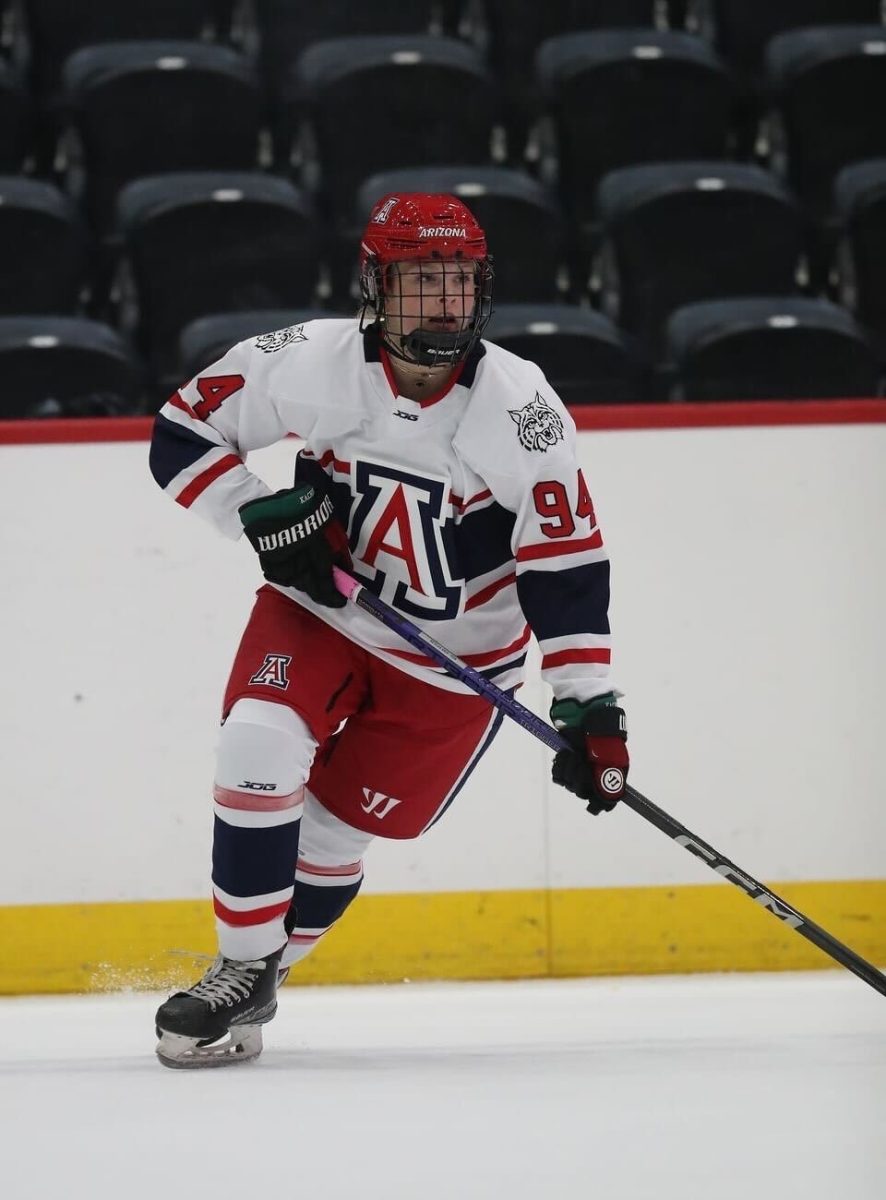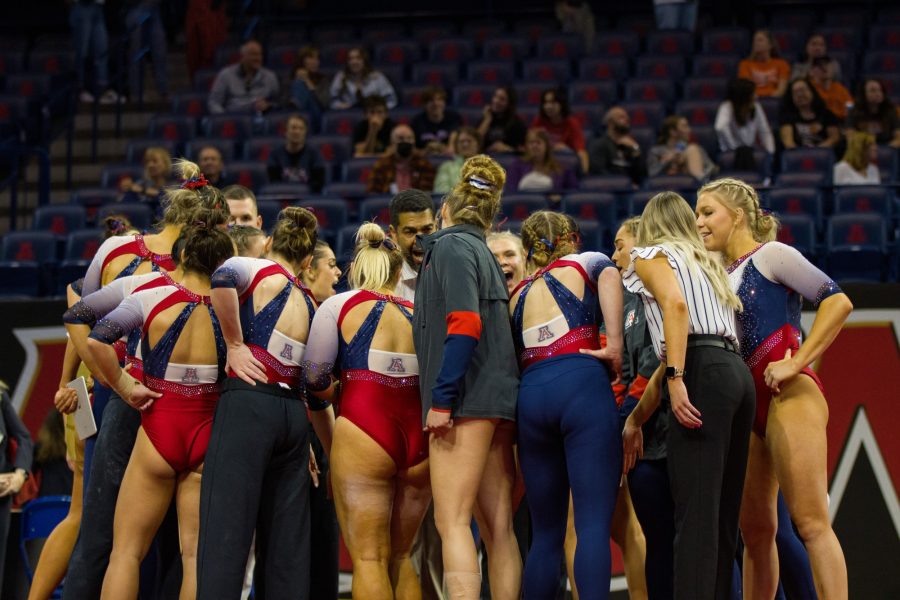Right now the Arizona men’s basketball team’s biggest rival, No. 13 UCLA, is in a bit of a tricky situation.
The Bruins’ star freshman Shabazz Muhammad, the No. 2 overall recruit according to ESPN, has been ruled ineligible for at least the start of the season for violating NCAA amateurism rules.
Muhammad has already missed the first two games of the season, and the Los Angeles Times said that with the way the violations stand, the talented small forward could miss the first 10 games on the UCLA schedule.
Arizona’s senior leader, Solomon Hill, had an interesting suggestion for Muhammad and other potential one-and-done players in similar situations: “If you don’t want to be investigated, just don’t go to college,” Hill told USA Today’s Eric Prisbell. “If you take money early, make the decision that you’re not going to attend college and you’re going to seek training. There’s nothing bad with that decision.
“Why take classes? Go get a trainer. You’re going to be a top-five pick. Do what you love to do.”
Starting in 2006, the NBA instituted a rule that requires players to be one year removed from high school before declaring for the draft, and the results have been, to put it nicely, sporadic.
But the latest incident with Muhammad has thrown another wrench into the system.
The rule was put into place to help protect both young players and NBA teams, as too many Kwame Browns and Sebastian Telfairs entered the NBA straight from high school and weren’t ready to handle the pressures of professional basketball.
But the league’s decision to create a one-year requirement only wound up creating more problems.
Without playing a single college game, Muhammad was already a consensus top-five pick for the 2013 Draft. Because of the rule, though, he’ll have to honor the process and wait for the NCAA investigation to play out, unless he just decides to leave UCLA and train for the year.
If the rule didn’t exist, Muhammad would be in the NBA right now, collecting a multi-million dollar salary.
There have been other situations where the “one-and-done” has created problems. In 2008, Arizona commit Brandon Jennings failed to meet the required score on his two attempts at the SAT and decided to bolt for Europe rather than receive the scores from his third attempt. Some players just aren’t meant to go to college, but the way things are set up, it’s the path with the least resistance.
The real concern, though, is the potential for a career-altering injury. This hasn’t happened yet, but Duke’s Kyrie Irving tested the theory.
A foot injury limited Irving to 11 games in his freshman season, but he still declared for the draft and was taken No. 1 overall by the Cleveland Cavaliers. Irving won the Rookie of the Year award, so clearly the injury didn’t hurt his development. But it also showed how little of an influence college had for the one-and-done player.
The UCLA situation isn’t hurting anyone but the team and Muhammad’s reputation. The Bruins have to make do with their roster until maybe, someday, their star can join them on the court.
I’m not saying college basketball isn’t huge for a player. I think it’s crucial for almost every player’s development. But going through the motions of one season (and one semester of classes in order to maintain eligibility) isn’t the solution.
Arizona’s coach Sean Miller said Hill, a four-year player, is an example of why a full college career is important.
“With Solomon, it’s just been a continuous process where each year you can see that he added different elements to his game that make him a valuable player,” Miller said. “Not too long ago that’s what happened in a program, as young players would come in and they would grow within. And when they would leave, they would become the best that they could be.”
— Kyle Johnson is a journalism junior. He can be reached at sports@wildcat.arizona.edu or on Twitter via @WildcatSports or @KyleJohnsonUA.



